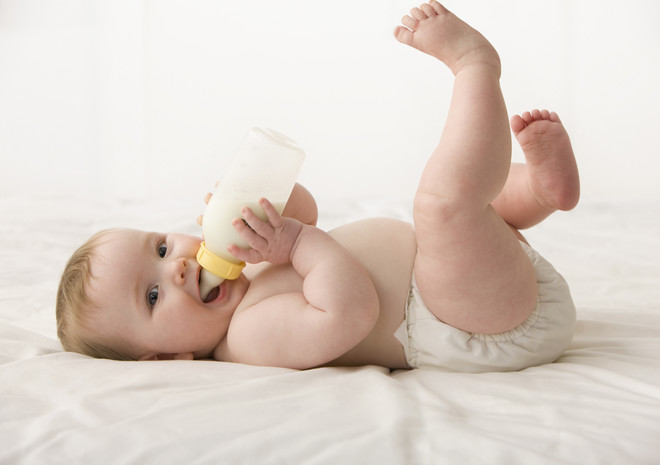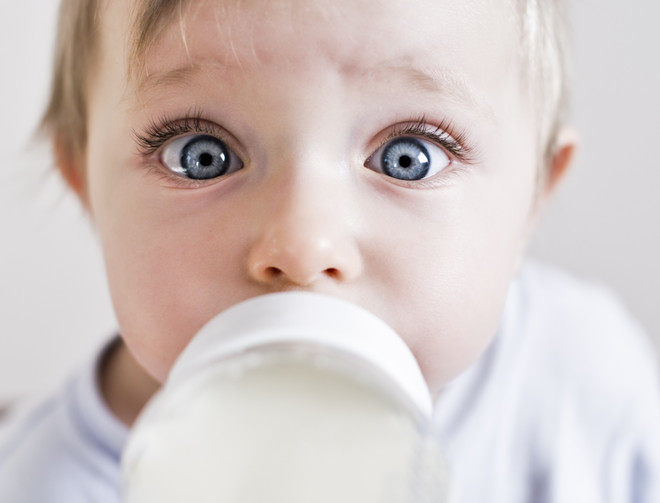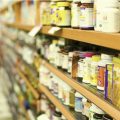Important question: if for some reason it is not possible to establish natural feeding, how to pick up a quality imitation of natural food for a baby? Adapted, as close as possible to breast milk, saturated with vitamins, micro- and macro elements ... Eyes run off at the counter with the mixtures. - Take this, and let's go, - actually heard by me the phrase of the papa nervous in the store. - In advertising, she saw, said, in general from the natural does not differ. But that's not worth doing. First, consult a pediatrician. The doctor will tell you what type of mixture is right for your child. Then the choice is yours. And we'll tell you what to look for. Photo: GettyImages
Photo: GettyImages
Child's state of health
Regurgitation, constipation, frequent stools, colic,allergies or even hints of such disorders are a reason to choose a preventive, therapeutic and preventive or therapeutic formula. It can be fermented milk, with a high iron content, hypoallergenic, lactose-free, soy, anti-reflux (against regurgitation). If the baby is clinically healthy, we save our nerves and money - we buy regular food.
Age
If there is a number one on the can, it is food forbabies from birth to six months. The number two indicates that the formula is intended for children from six months to a year. Older children are fed with formulas numbered three and four instead of regular milk. This is not a fully adapted product, but a partially adapted product, to which more vitamins and minerals have been added. But the jars marked with the category "0" are intended for premature and underweight children.
The basis
Most often, the basis of the mixture is cow's milk.milk, less often goat's milk. There are also soy and amino acid mixtures. This is important if you suspect that the child does not react well to the standard composition.
Convenience
There are two options:dry powder that needs to be diluted with water, and liquid mixtures. The first mixtures are good because they are stored for a long time, are cheaper, and it is easier to measure out a portion. There are most of these on the domestic market. With the second, you do not need to do any additional manipulations, except for heating. But they have a short shelf life. Photo: GettyImages
Photo: GettyImages
Adaptation
Let's remember:Adapted formulas are made from demineralized whey of cow's milk. They are light, nutritious and as close as possible to mother's milk. For babies with cow's protein intolerance, there are, as we have already said, formulas on goat's milk. Partially adapted formulas are close in composition to breast milk, but in addition to lactose they already contain sucrose, and the mineral-fat composition is absent. Subsequent formulas are already made from dry whole milk with the addition of not only sucrose, but also starch. Non-adapted formulas, from casein, are already for older children.
Read the composition: what to look for
— The amount of protein.It is necessary for the growth and development of the baby. The optimal level: 12-14 grams per 1000 milliliters of the finished mixture. It is ideal when there are whey proteins. - The presence of fats, preferably vegetable ones - due to them the baby receives energy and substances for the development of the nervous system. In addition, these are calories, and therefore nutritional value. - Lactose is the main carbohydrate in both natural and artificial milk. It is responsible for the intestinal microflora and much more. - Minerals and vitamins. They are contained in absolutely all mixtures, the amount is practically the same, the optimal ratio is documented. - Prebiotics and probiotics. They affect the intestinal microflora, reduce the risk of food allergies. What you need to understand The first mixture bought is not always suitable for a child. If your baby has a rash or other allergic reaction, he has started to lose or stopped gaining weight, sleeps poorly, you have noticed that he has problems with stool and he is hungry again almost immediately after feeding, then the food is not suitable for him. At the same time, the "pleasure" of artificial feeding is not cheap: the simplest ones cost from 350-400 rubles per jar, then more expensive. A mixture on goat's milk and even more than 1000 rubles. So do not immediately buy in bulk, first take one jar. Also interesting:









